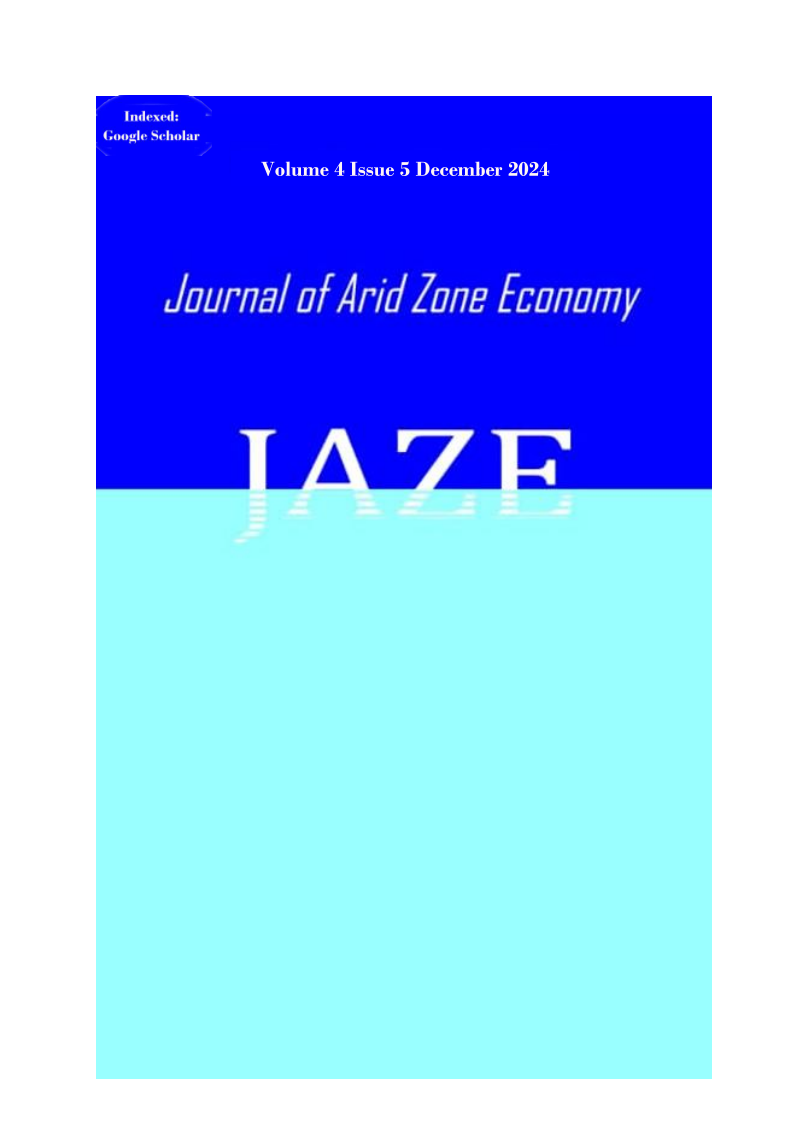Asymmetric Examination of Selected Monetary Policy Tools and Inclusive Growth in Nigeria
Keywords:
Monetary policy, Inclusive growth, Money supply, Exchange rate, Interest rateAbstract
The study examined the impact of selected monetary policy tools on
inclusive growth in Nigeria. The research specifically sought to examine
the asymmetric relationship between interest rate, exchange rate, money
supply and inclusive growth in Nigeria. The Keynesian monetary theory
served as the theoretical framework of the research. The study utilized
annual time series data from 1986 to 2023, employing Nonlinear
Autoregressive Distributed Lag (NARDL) model. The results indicated
the existence of cointegration among the variables. From the result,
money supply, exchange rate and interest rate revealed a positive,
negative and negative relationship with inclusive growth in Nigeria
respectively and statistically significant relationship with inclusive
growth in the long run during expansionary monetary policy (MS_POS,
EXR_NEG and MPR_NEG) in Nigeria, while during contractionary
policy regimes ((MS_NEG, EXR_POS and MPR_POS)), money supply
and exchange shown statistically not significant while interest rate shown
negative and statistically significant relationship with inclusive growth
in Nigeria. Furthermore, in the short run, expansionary policy of money
supply, exchange rate and interest rate show a positive and statistically
significant relationship with inclusive growth in Nigeria while the
contractionary policy of money supply, exchange rate and interest rate
indicated a negative but not statistically significant. Based on these
results, the study recommends that policymakers prioritize monetary
policy, particularly money supply aspect, as a crucial channel for
fostering inclusive growth in Nigeria.

Downloads
Published
Issue
Section
License
Copyright (c) 2024 Journal of Arid Zone Economy

This work is licensed under a Creative Commons Attribution 4.0 International License.

